
More than one-third of all animals on earth, from beetles to cows and elephants, depend on plant-based diets. Plants are a low-calorie food source, so it can be challenging for animals to consume enough energy to meet their needs. Now climate change is reducing the nutritional value of some foods that plant eaters rely on.
Human activities are increasing atmospheric carbon dioxide levels and raising global temperatures. As a result, many plants are growing faster across ecosystems worldwide.
Some studies suggest that this "greening of the earth" could partially offset rising greenhouse gas emissions by storing more carbon in plants. However, there's a trade-off: These fast-tracked plants can contain fewer nutrients per bite.
I'm an ecologist and work with colleagues to examine how nutrient dilution could affect species across the food web. Our focus is on responses in plant-feeding populations, from tiny grasshoppers to giant pandas.
We believe long-term changes in the nutritional value of plants may be an underappreciated cause of shrinking animal populations. These changes in plants aren't visually evident, like rising seas. Nor are they sudden and imminent, like hurricanes or heatwaves. But they can have important impacts over time.
Plant-eating animals may need more time to find and consume food if their usual meal becomes less nutritious, exposing themselves to greater risks from predators and other stresses in the process. Reduced nutritional values can also make animals less fit, reducing their ability to grow, reproduce and survive.
RISING CARBON, FALLING NUTRIENTS
Research has already shown that climate change is causing nutrient dilution in human food crops. Declines in micronutrients, which play important roles in growth and health, are a particular concern: Long-term records of crop nutritional values have revealed declines in copper, magnesium, iron and zinc.
この記事は The Straits Times の January 06, 2025 版に掲載されています。
7 日間の Magzter GOLD 無料トライアルを開始して、何千もの厳選されたプレミアム ストーリー、9,000 以上の雑誌や新聞にアクセスしてください。
すでに購読者です ? サインイン
この記事は The Straits Times の January 06, 2025 版に掲載されています。
7 日間の Magzter GOLD 無料トライアルを開始して、何千もの厳選されたプレミアム ストーリー、9,000 以上の雑誌や新聞にアクセスしてください。
すでに購読者です? サインイン
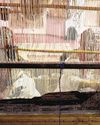
AGE-OLD CRAFT OF WEAVING CARPETS AT RISK
In southern Morocco, women are the guardians of the age-old craft of carpet weaving, an intricate art form that often leaves them with meagre earnings.

Zendaya and Tom Holland engaged, says US media
Spider-Man co-stars Zendaya and Tom Holland are engaged, American media reported on Jan 6, the day after she was spotted wearing a huge diamond ring.

Johnny Depp alerts fans to online scammers posing as him
Hollywood actor Johnny Depp has alerted his fans to online scammers impersonating him.
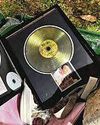
Singapore composer George Leong calls Dick Lee 'self-centred' amid emotional rant about music scene
Singaporean composer and musician George Leong has worked on some of the biggest hits of Mandopop and Cantopop, but in an impassioned Facebook post, the 54-year-old seemed to have thrown it all away.
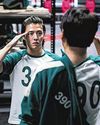
Squid Game 2 Met With Backlash Over Vietnam War Reference
Squid Game 2, a dystopian drama in which hopeless people compete for survival by playing Korean children's games, is facing backlash from Vietnamese audiences over a remark on the Vietnam War (1955 to 1975).
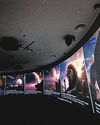
68 S'pore writers sign statement on NLB's 'uncritical endorsement' of generative AI
Members of Singapore's literary community are calling on the National Library Board (NLB) to exercise greater prudence in adopting generative artificial intelligence (AI) or risk \"permanently damaging Singapore's literary landscape\".
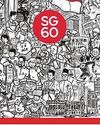
Mediacorp disqualifies stolen designs from competition
Three illustrations submitted to a Mediacorp design competition have been removed from the media company's website and disqualified after they were found to have been stolen.
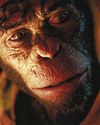
From bad boy to Better Man
Pop star Robbie Williams reflects on hedonism and healing for biopic
That very hot drink could be doing you harm
Drinking very hot beverages is a proven risk factor for oesophageal cancer
STRENGTH BAND-AID
Research suggests that resistance bands are as effective as weights at building strength